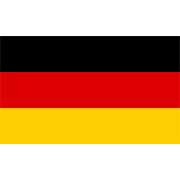Fiscal subject related
Initially, German federal states were required to accept e-invoices from April 18, 2020. By January 01, 2028, all businesses must issue and receive electronic invoices. From January 01, 2027, businesses with an annual turnover exceeding €800,000 will be required to issue structured electronic invoices. For transactions in 2027, companies below this turnover threshold can still issue paper or non-structured electronic invoices, provided the recipient agrees. This phased approach ensures that larger businesses, which typically have more resources, comply first.
December 31, 2027: EDI Formats for Invoices in 2026 and 2027
Businesses can issue invoices in Electronic Data Interchange (EDI) formats for transactions made in 2026 and 2027 until December 31, 2027, with the recipient's consent. This allows businesses to use existing technologies and systems to meet the new requirements without significant disruptions. The use of EDI formats is permitted regardless of the company's turnover.
January 01, 2028: Full Implementation of B2B E-Invoicing
By January 01, 2028, all businesses in Germany must issue and receive structured electronic invoices, marking the complete transition to e-invoicing for B2B transactions. This final phase is expected to greatly enhance business efficiency, improve cash flow management, and reduce the administrative burden of invoicing. Additionally, it will provide tax authorities with better tools to monitor compliance, reduce tax evasion, and improve overall tax revenue. Businesses will benefit from faster invoice processing, lower costs, and improved data accuracy.
Other news from Germany
Germany Publishes Its Electronic Business Address (GEBA)
 Germany
Author: Ivana Picajkić
Germany
Author: Ivana Picajkić
Germany has introduced the German Electronic Business Address (GEBA), published on 18 December 2025 by XStandards Einkauf, as a standardized electronic identifier to accurately route e-documents—especially e-invoices—within networks like Peppol. While GEBA is voluntary, it enhances interoperability, clarity of sender/receiver identification, and readiness for future digital tax and reporting frame... Read more



Germany: Businesses Must Prepare for E-Invoicing Earlier Than Expected
 Germany
Author: Ivana Picajkić
Germany
Author: Ivana Picajkić
Although mandatory B2B e-invoicing in Germany will only apply from 2027, businesses have been allowed to use e-invoices voluntarily since January 2025 and adoption is accelerating as 2026 approaches. As more suppliers switch early, companies operating in Germany already need to be technically ready to receive structured e-invoices to avoid compliance and operational disruptions. Although mandatory... Read more



Germany: Court Confirms Tax Authorities Can Request Tax-Relevant Emails During Audits
 Germany
Author: Ivana Picajkić
Germany
Author: Ivana Picajkić
German tax authorities are increasingly requesting tax-relevant emails during audits, and a 2025 Federal Fiscal Court ruling confirmed that such emails must be retained and disclosed when they contain relevant commercial or tax information. Read more
Subscribe to get access to the latest news, documents, webinars and educations.
Already subscriber? Login


Germany and France Update their Common E-Invoicing Standard
Germany and France will jointly update their hybrid e-invoice formats ZUGFeRD and Factur-X on 15 January 2026 to align with EN 16931 and support their upcoming B2B e-invoicing mandates. The new version expands technical capabilities, improves interoperability, and ensures full compatibility between both formats as Europe prepares for unified digital reporting under ViDA Germany and France have ann... Read more



Germany Lowers VAT on Food in Restaurants to 7% from 2026
 Germany
Author: Ivana Picajkić
Germany
Author: Ivana Picajkić
The German government has approved the Tax Amendment Act 2025. Starting January 1, 2026, the VAT rate for all food served in restaurants will be reduced to 7%. This change will support restaurants, cafés, bakeries, butchers, and catering businesses What changes on January 1, 2026? Food eaten on-site in restaurants will drop from 19% to 7% VAT. This creates a uniform 7% VAT rate for: din... Read more



German 2025-2028 TSE Replacement: Steps for POS Providers and Retailers
 Germany
Author: Ivana Picajkić
Germany
Author: Ivana Picajkić
Germany’s TSE replacement will unfold in multi-year waves from 2025 to 2028, because each hardware TSE expires five years after activation rather than on a single nationwide date. This long replacement cycle forces manufacturers, integrators, and retailers to plan strategically—balancing hardware swaps, cloud-TSE migrations, and clear communication to manage staggered deadlines and complex install... Read more



New document was uploaded: S4FiscalBackoffice Patch
S4F backoffice patch is intended for users who have already installed S4F backoffice and are intended to update existing installations to latest version. To do so apply only patches that are marked with version number that is newer than your currently installed instance of backoffice. Please make sure to install all available patches sequentially (without skipping). This package contains instruction, release notes, changelog and software packages required for deployment of this software component. Read more
Subscribe to get access to the latest news, documents, webinars and educations.
Already subscriber? Login

